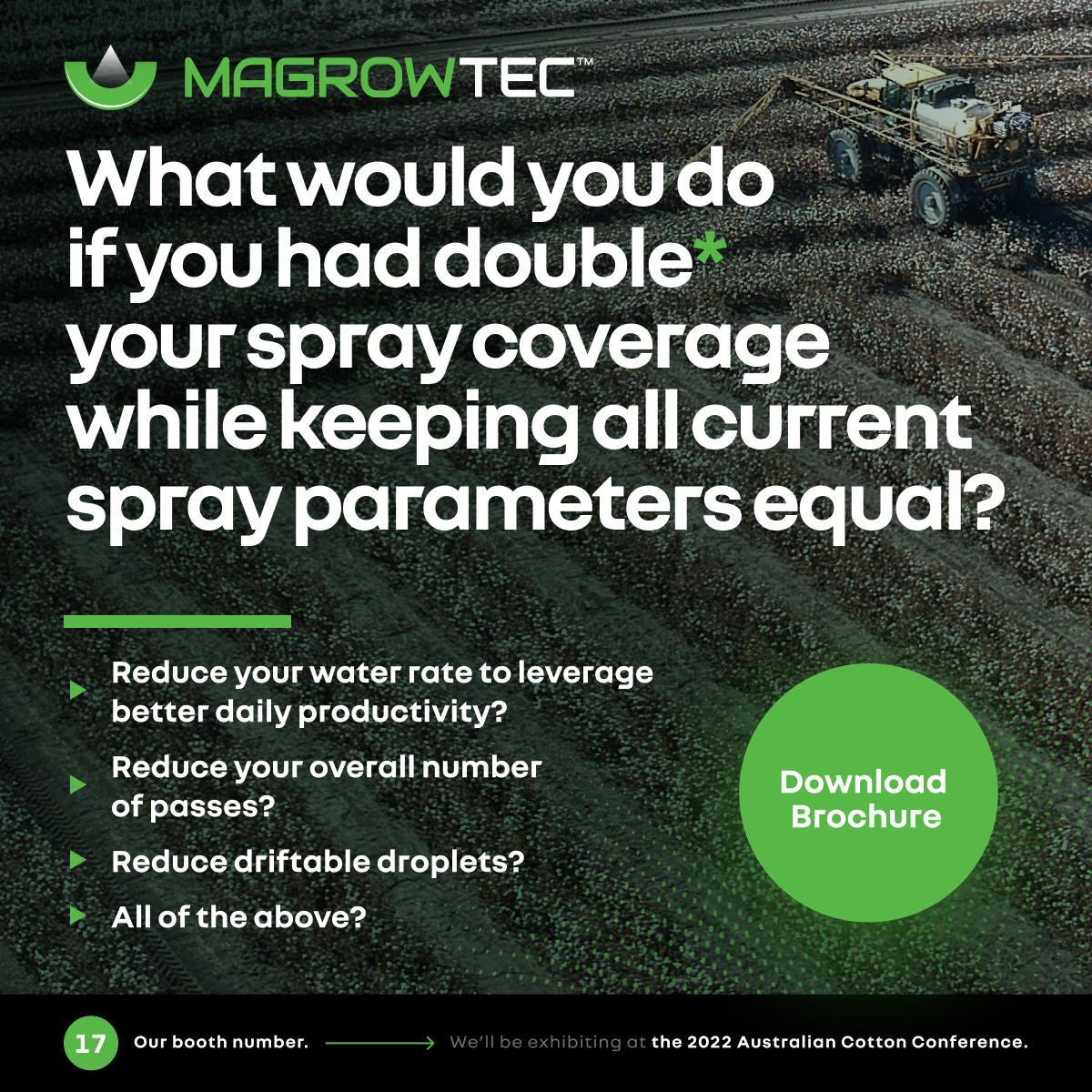John Seely
Video Overview
When Mississippi cotton farmer John Seely agreed to participate in a trial using the MagGrow system at his farming operation, Buford Lakes Planting Company, he didn’t have very high hopes.
“My initial expectations were that we would save 15-20 % on chemicals and the yields would be reduced by a comparable amount,” he says. He was in for a surprise.
MagGrow dealer Vantage South set up the trial on an 80-acre field to comparing the performance of a conventional sprayer to a sprayer outfitted with the MagGrow system. Cutting the field down the middle, they replicated the same rate on both sides. On an additional strip, the MagGrow rate was reduced to 75%. According to Seely and his farm operators, the results were “shocking.”
“There was a significant yield bump with the MagGrow system,” says Seely. In fact, the reduced-rate application increased yield by 316 pounds per acre.
Later use of MagGrow on the farm showed similar results. Operators went on to achieve the same kill rate they had previously gotten with conventional spraying using half the water and half the herbicide in conjunction with the MagGrow system.
“From a numbers standpoint, you add that up over the course of a growing season, and your savings on just chemical costs alone can be exponential,” says Buford Lakes operator Taylor Miller. “You can save a lot of money using MagGrow. “
The Buford Lakes team was also impressed with the decreased drift.
“There was hands-down a night and day difference in the drift,” notes Miller.
Fellow operator Matthew Garrard agrees. “Even spraying with 10-15 mile-per-hour winds, there was no drift. It didn’t hurt even one plant on the outside edge of the field.”
Vantage South owner Brian Smith also points out the ease of use for MagGrow. From the installer to the operator to the famer, MagGrow is user friendly.
“It works exactly how it says it works,” Garrard says. “The assembly is simple. Cleaning is simple. It’s no added pressure to the operator. There’s no buttons to be switched.”
“Just put it on your sprayer,” Miller urges. “It’s going to save you money. You’re going to use a third of the Round-up that you usually spray with, and it’s going to kill the weeds better because the water droplets go straight to the target weed.”
“After all,” he continues, “the ultimate reason that you’re farming is to make money. To put food on your table. If there’s a tool out there that’s going to allow you to increase your chances of making money, then why wouldn’t you use it?”
“There are a lot of products on the market that have big claims but don’t produce at the end of the year,” says John Seely. “This is different. Less time in the field. Less chemical. Less water. No moving parts. Better yield. Is there anything else to say?”
 Back To Overview
Back To Overview
 Share
Share